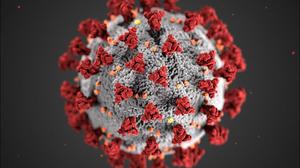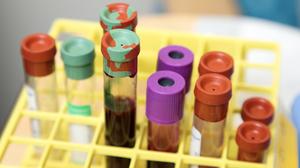Loading...
Found 205 Type 2 Diabetes Mellitus trials
A listing of Type 2 Diabetes Mellitus medical research trials actively recruiting patient volunteers. Search for closest city to find more detailed information on a research study in your area.

The overall goal of the HeartShare Deep Phenotyping Study is to create a rich repository of data (e.g., demographic, social determinants of health, clinical, physiological, laboratory), images, and multi-omics (blood and tissue samples) that will serve as a resource for investigators to identify novel HFpEF subtypes and mechanisms (biological and …
Learn More
Online study

The Revitalize-1 Study will look at a potential procedure called duodenal mucosal resurfacing (DMR). The DMR procedure acts on the first layer (mucosa) of the duodenum (the part of the small intestine located immediately after the stomach). By removing an excess layer, the treatment may improve blood sugar control. This …

Families play an important role in the experiences of patients with chronic illnesses, including chronic obstructive pulmonary disease (COPD). This study aims to identify how an evidence-based coping skills training program, where patients and a support person work together to manage and overcome disease-related distress, can reduce depression and anxiety …

To investigate the safety and efficacy of Tradipitant versus placebo in relieving nausea and other symptoms of gastroparesis.

This clinical research trial is being conducted to find out whether the administration of two investigational dMab products (not approved by the US FDA) with an investigational device is safe, tolerated, and can produce enough antibodies in your blood that may indicate the ability to prevent infection of COVID-19.

If you tested positive for COVID-19 within the last 5 days, you may be eligible to participate in a research study to test the ability of a pill to reduce COVID-19 symptoms.

Familial lecithin:cholesterol acyl transferase (LCAT) deficiency (FLD) is a rare, hereditary disease with no treatment. It is caused by mutations in the gene for LCAT, an enzyme that is made in the liver and plays a role in the body’s ability to process (“metabolize”) cholesterol. People with FLD have very …
The purpose of this study is to investigate different oral and systemic problems including dental carries, periodontal disease, dry mouth, high cholesterol, diabetes, heart disease, and osteoporosis, observed in patients living with HIV on antiretroviral therapy.

The purpose of this study is to see how your body forms a protective response after vaccination and how it deals with viral variants. We are studying the immune response to the COVID-19 vaccines.

The research study is being done to understand both why and how scleroderma and related female-biased diseases affect women and men differently. Though we do not know what causes these diseases, we do know that women are much more likely to develop them than men. We are studying how the …